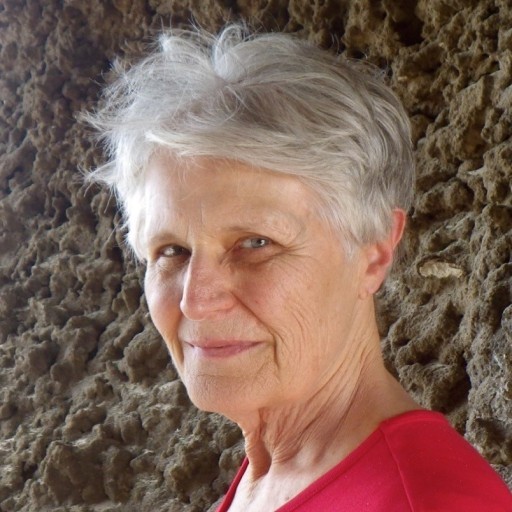
Reposted from New York Timeshttp://www.nytimes.com/2016/04/19/opinion/a-new-dark-age-looms.html?emc=eta1&_r=0
Boulder, Colo. — IMAGINE a future in which humanity’s accumulated wisdom about Earth — our vast experience with weather trends, fish spawning and migration patterns, plant pollination and much more — turns increasingly obsolete. As each decade passes, knowledge of Earth’s past becomes progressively less effective as a guide to the future. Civilization enters a dark age in its practical understanding of our planet.
To comprehend how this could occur, picture yourself in our grandchildren’s time, a century hence. Significant global warming has occurred, as scientists predicted. Nature’s longstanding, repeatable patterns — relied on for millenniums by humanity to plan everything from infrastructure to agriculture — are no longer so reliable. Cycles that have been largely unwavering during modern human history are disrupted by substantial changes in temperature and precipitation.
As Earth’s warming stabilizes, new patterns begin to appear. At first, they are confusing and hard to identify. Scientists note similarities to Earth’s emergence from the last ice age. These new patterns need many years — sometimes decades or more — to reveal themselves fully, even when monitored with our sophisticated observing systems. Until then, farmers will struggle to reliably predict new seasonal patterns and regularly plant the wrong crops. Early signs of major drought will go unrecognized, so costly irrigation will be built in the wrong places. Disruptive societal impacts will be widespread.
Such a dark age is a growing possibility. In a recent report, the National Academies of Sciences, Engineering and Medicine concluded that human-caused global warming was already altering patterns of some extreme weather events. But the report did not address the broader implication — that disrupting nature’s patterns could extend well beyond extreme weather, with far more pervasive impacts.
Our foundation of Earth knowledge, largely derived from historically observed patterns, has been central to society’s progress. Early cultures kept track of nature’s ebb and flow, passing improved knowledge about hunting and agriculture to each new generation. Science has accelerated this learning process through advanced observation methods and pattern discovery techniques. These allow us to anticipate the future with a consistency unimaginable to our ancestors.
But as Earth warms, our historical understanding will turn obsolete faster than we can replace it with new knowledge. Some patterns will change significantly; others will be largely unaffected, though it will be difficult to say what will change, by how much, and when.
The list of possible disruptions is long and alarming. We could see changes to the prevalence of crop and human pests, like locust plagues set off by drought conditions; forest fire frequency; the dynamics of the predator-prey food chain; the identification and productivity of reliably arable land, and the predictability of agriculture output.
Historians of the next century will grasp the importance of this decline in our ability to predict the future. They may mark the coming decades of this century as the period during which humanity, despite rapid technological and scientific advances, achieved “peak knowledge” about the planet it occupies. They will note that many decades may pass before society again attains the same level.
One exception to this pattern-based knowledge is the weather, whose underlying physics governs how the atmosphere moves and adjusts. Because we understand the physics, we can replicate the atmosphere with computer models. Monitoring by weather stations and satellites provides the starting point for the models, which compute a forecast for how the weather will evolve. Today, forecast accuracy based on such models is generally good out to a week, sometimes even two.
But farmers need to think a season or more ahead. So do infrastructure planners as they design new energy and water systems. It may be feasible to develop the science and make the observations necessary to forecast weather a month or even a season in advance. We are also coming to understand enough of the physics to make useful global and regional climate projections a decade or more ahead.
The intermediate time period is our big challenge. Without substantial scientific breakthroughs, we will remain reliant on pattern-based methods for time periods between a month and a decade. The problem is, as the planet warms, these patterns will become increasingly difficult to discern. This will present a troubling issue for regions of the world subject to El Niño, monsoon cycles and other long-term weather variability. Predicting extreme weather may become even more trying than it is today.
The oceans, which play a major role in global weather patterns, will also see substantial changes as global temperatures rise. Ocean currents and circulation patterns evolve on time scales of decades and longer, and fisheries change in response. We lack reliable, physics-based models to tell us how this occurs. Our best knowledge is built on what we have seen in the past, like how fish populations respond to El Niño’s cycle. Climate change will further undermine our already limited ability to make these predictions. Anticipating ocean resources from one year to the next will become harder.
Civilization’s understanding of Earth has expanded enormously in recent decades, making humanity safer and more prosperous. As the patterns that we have come to expect are disrupted by warming temperatures, we will face huge challenges feeding a growing population and prospering within our planet’s finite resources. New developments in science offer our best hope for keeping up, but this is by no means guaranteed.
Our grandchildren could grow up knowing less about the planet than we do today. This is not a legacy we want to leave them. Yet we are on the verge of ensuring this happens.
